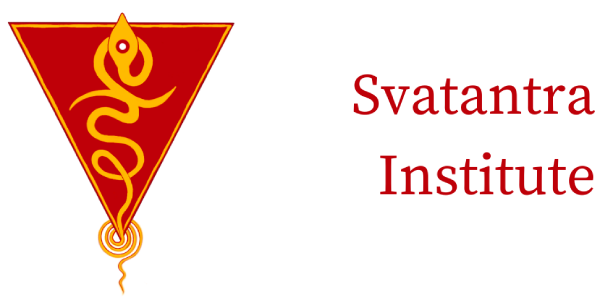In 2018 my dad passed away, and it was an incredible loss. We had a very special bond, and I was with him through much of his illness traveling back and forth to India. After he passed, I was on the verge of depression, emotionally and physically exhausted. After about six weeks, my guru Aiya texted me and asked how I was doing. I told him I was fine but still had a lot of sadness. Anybody else would have said, ‘Oh you poor thing, yeah I can understand it.’ However, he cut right to the chase and said, ‘All of this needs to go Amma, all karmic traces need to go.’
In this time of Pitṛpakṣa, it is important to reflect on how we are identified and bound with our family and ancestors. Many of our default patterns, and the voices directing us in our heads, can be traced to our care providers. Whether we aligned with them or rebelled, we are unknowingly carrying them with us, stuck in cycles of ancestral trauma. There is a simple, beautiful teaching from the Upaniṣads, Idam Na Mama, ‘not mine.’ It is an invitation to become aware that we have inherited many of the ideas we hold about ourselves and others. As we begin to recognize that these are not ours, we are able to become free of them by returning them to our ancestors with appreciation. Idam Na Mama, “Thank you, Mom, I am choosing to believe/do something else.”
As we deepen our moment-to-moment practice of recognizing how we are constantly acting from ideas and beliefs that are not ours, we begin to see that our ancestors were doing the same. They too were innocently in habitual patterns that they had inherited; the fears, the aggression, the violence, the injustice, the discrimination, etc. We begin to open to forgiveness which comes from understanding that people do what they do because that's all they know to do. The generations of trauma caused by our unconscious action comes from that helplessness. Unless we bring awareness to that, it's not going to dissolve.
The best way to honor your ancestors is to understand that karma only applies to this person you think you are, not to Absolute Reality. Ṛṇa, or karmic debt, can only be dissolved through forgiveness and forgiveness only happens through higher understanding. You know you have forgiven someone when you can think of them, and it brings up nothing, it's just a memory that has no capability to induce any response from you. Avoidance, repression, suppression; none of these are forgiveness. Forgiveness comes from full acceptance and allowance. Understanding that this person is just the way they are, is freedom, the freedom to be whatever you want to be, without being influenced by somebody else.
Take absolute responsibility. Let your ancestors go and live your own life. Make amends. It does not help to do Pitṛpakṣa rituals if you did not try to fix things when somebody was alive. Make peace with people because you don't know if you're going to be alive tomorrow. Don't hold grudges. Life is too short for that. Your family is a product of their lineage, and they have passed it on to you, but you don't have to be that way. You have a choice. Idam Na Mama needs to become your lived reality.
Image: Design created using Canva.
